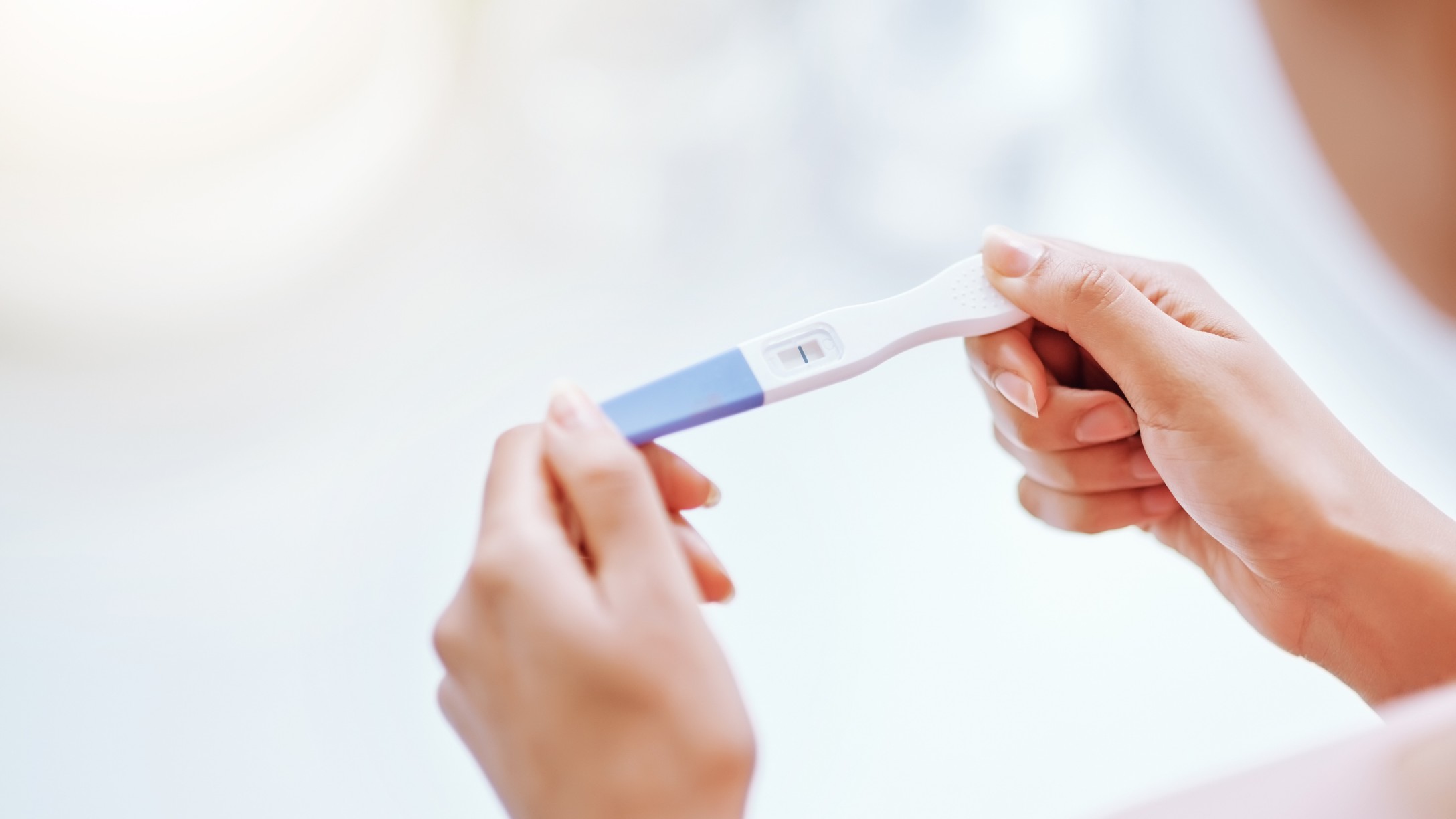
A woman who thought she would never experience motherhood unexpectedly gave birth to a baby when she went to the bathroom one day. Courtney Scherger didn't experience any traditional pregnancy symptoms so she had no idea that she was pregnant. She felt normal up until just before she gave birth.
Speaking to the Australian Broadcasting Corporation, Courtney described heading to the bathroom one day because she felt kind of strange. But with "one big quick push," she ended up giving birth to her son into the toilet.
More from CafeMom: 16 Staff Members at One Hospital Are All Pregnant — 'Everyone Is Noticing'
The new mom thought she couldn't conceive.
As a woman who is said to be in perimenopause, Courtney thought she wouldn't get pregnant. Even so, she did take a pregnancy test during the time that she would've been pregnant, but the test came back negative. However, false negatives are possible, even later into a pregnancy.
Courtney trusted the negative test result because she didn't experience pregnancy symptoms, she told ABC radio. No visible signs. No unusual discomfort or food cravings. She even continued to bleed, making her think that she was still getting her period, and therefore, not pregnant.
The sudden birth came as a shock.

Courtney's birthing experience was equally surprising. She didn't experience too much pain and "it was all so quick," she told ABC radio. Understandably, after she gave birth to a baby (feet first) into a toilet, she was "freaking out" and shouted to her partner, Simon Whittington, who then went into the room and got the newborn baby out of the toilet.
More from CafeMom: I Made the Viral Jolly Rancher Grapes With My 9-Year-Old Son & It Left Him Severely Burned
Mom and baby were taken to the hospital.
When paramedics arrived, they cut the umbilical cord and took the mom and her newborn baby to the hospital. Because the experience was so unexpected, Simon told ABC radio that he didn't even begin to process "what actually had gone on" until he got to the hospital. The baby boy, Eli, is healthy and his parents were thrilled to welcome him to their family in spite of the initial shock.
What Courtney experienced is called cryptic pregnancy.

There's a name for being pregnant without realizing it — it's referred to as a cryptic pregnancy, and it's not common. According to Cleveland Clinic, what Courtney experienced — not knowing you're pregnant until labor begins — happens in about 1 in 2,500 pregnancies.
False negative results from at-home pregnancy tests, not having pregnancy symptoms, and/or thinking the symptoms are caused by something other than pregnancy could stop people from realizing that they're pregnant, notes Cleveland Clinic.
Anyone can have a cryptic pregnancy.
Though anyone can have a cryptic pregnancy, those who are in perimenopause are at a higher risk because they might think the uncomfortable symptoms they're experiencing are menopause symptoms, not pregnancy symptoms, per Cleveland Clinic. Additionally, it might occur when a woman thinks she's too old to get pregnant.
The medical center also notes that even those who don't know they are pregnant will not get their periods while pregnant. However, irregular bleeding has many causes, and some people who are dealing with implantation bleeding or abnormal pregnancy bleeding might think it's their menstrual period.
Courtney called it a 'miracle.'
Baby Eli's arrival was a complete surprise, but a good one overall. Courtney referred to it as a "miracle … to be surprised with a gorgeous little baby." Luckily, the new parents are also surrounded by a community of people who are supporting them as they navigate parenthood.




